One of his most revered works, Caravaggio (1986), is a stylistic reimagination of the life of the Baroque painter, with bold depictions of homosexual desire, theatrical re-enactments of famous paintings and surrealist disregard for historical accuracy.
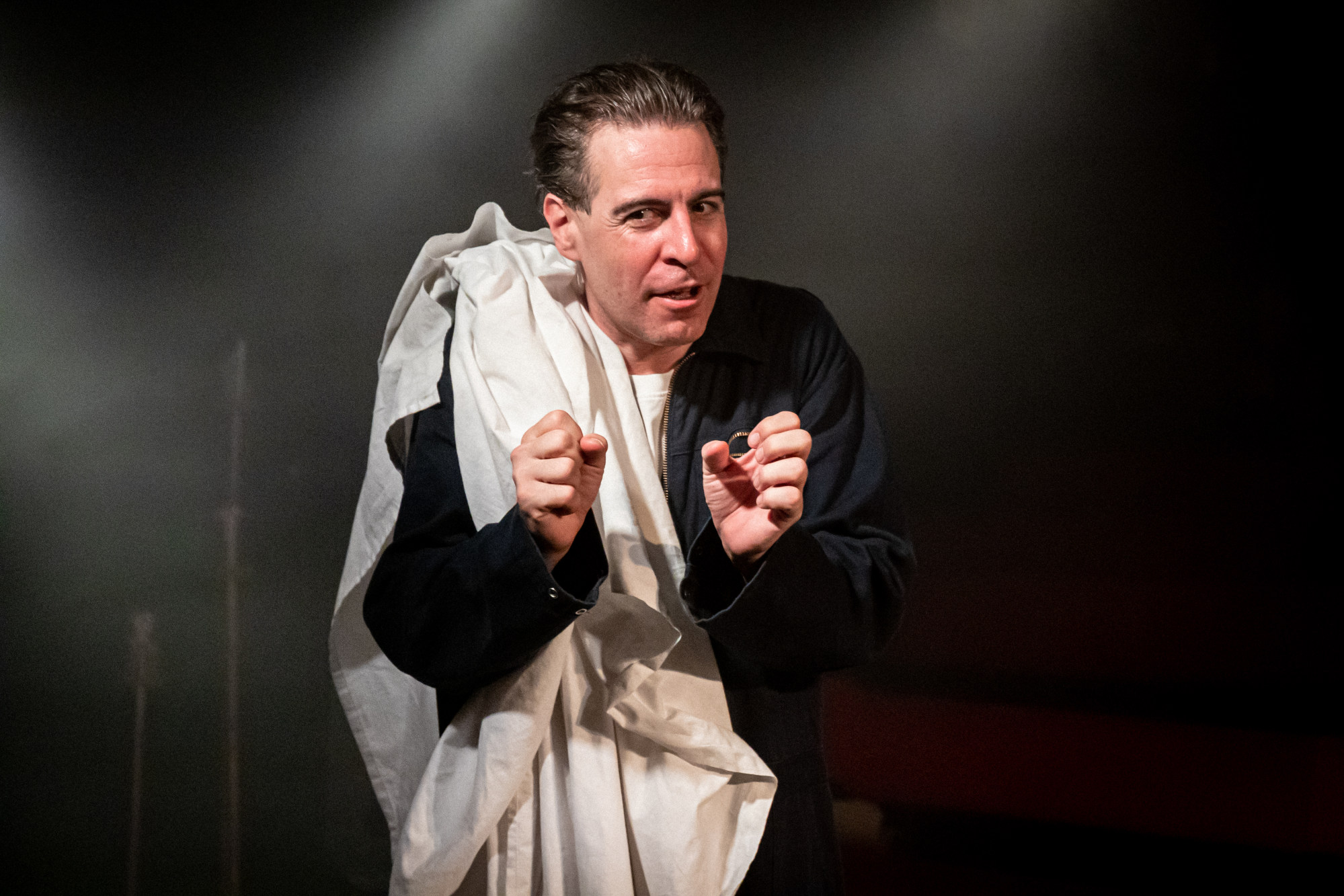
It won the Silver Bear for outstanding single achievement at the 36th Berlin International Film Festival.
A prominent activist dedicated to fighting homophobia in Britain, Jarman publicly disclosed that he was HIV positive just a month after his diagnosis in December 1986.
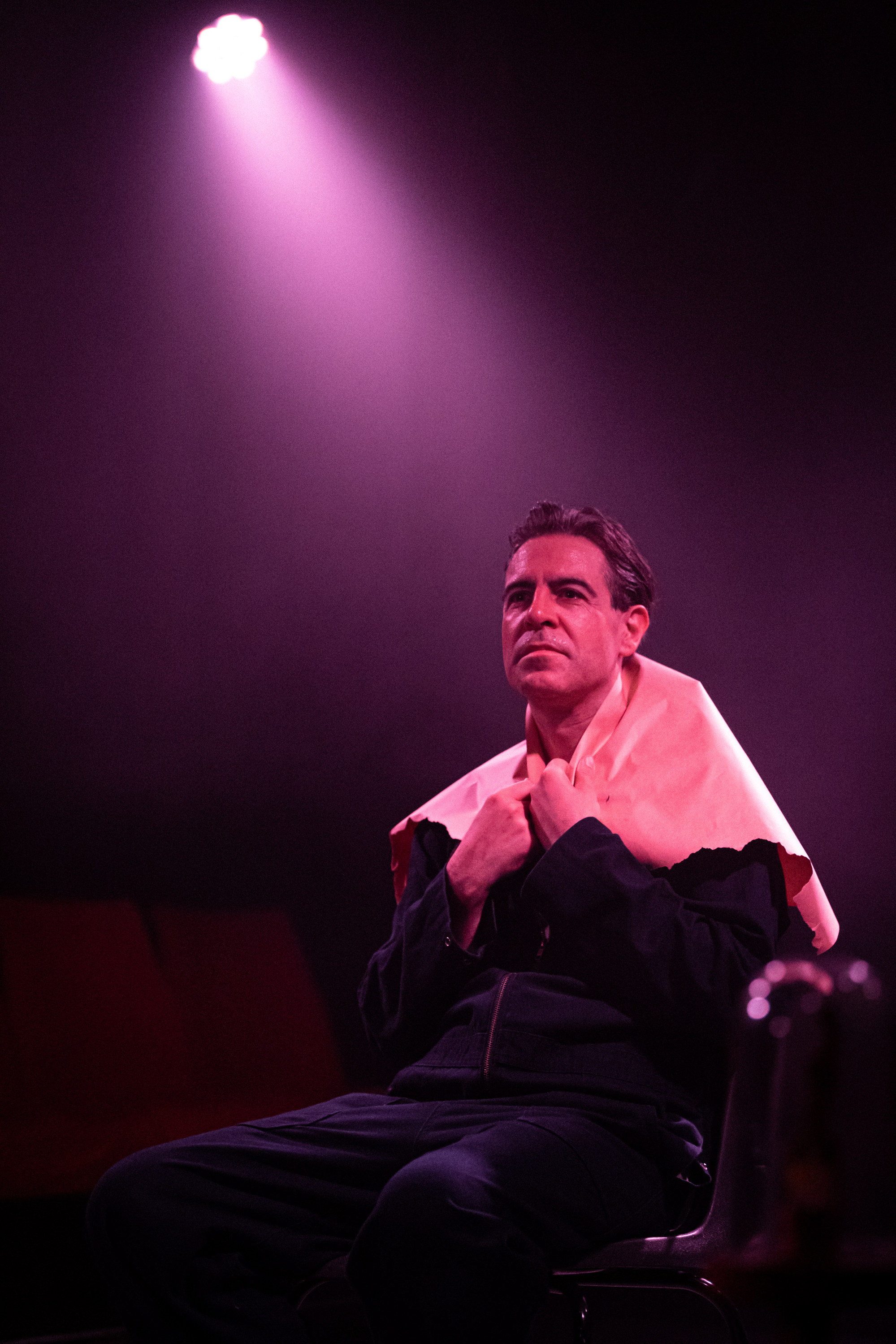
He was “one of the very few people in that era’s public eye” who spoke out, resulting in “hate mail, abuse and newspaper criticism”, says Farrelly.
Jarman succumbed to an Aids-related illness in 1994, aged 52, while Farrelly was a teenager.
Farrelly grew up witnessing the negative portrayals of the artist in mainstream media. In 2018, however, he read Jarman’s diaries, Modern Nature (1991) and Smiling in Slow Motion (2000), which chronicled his final five years.
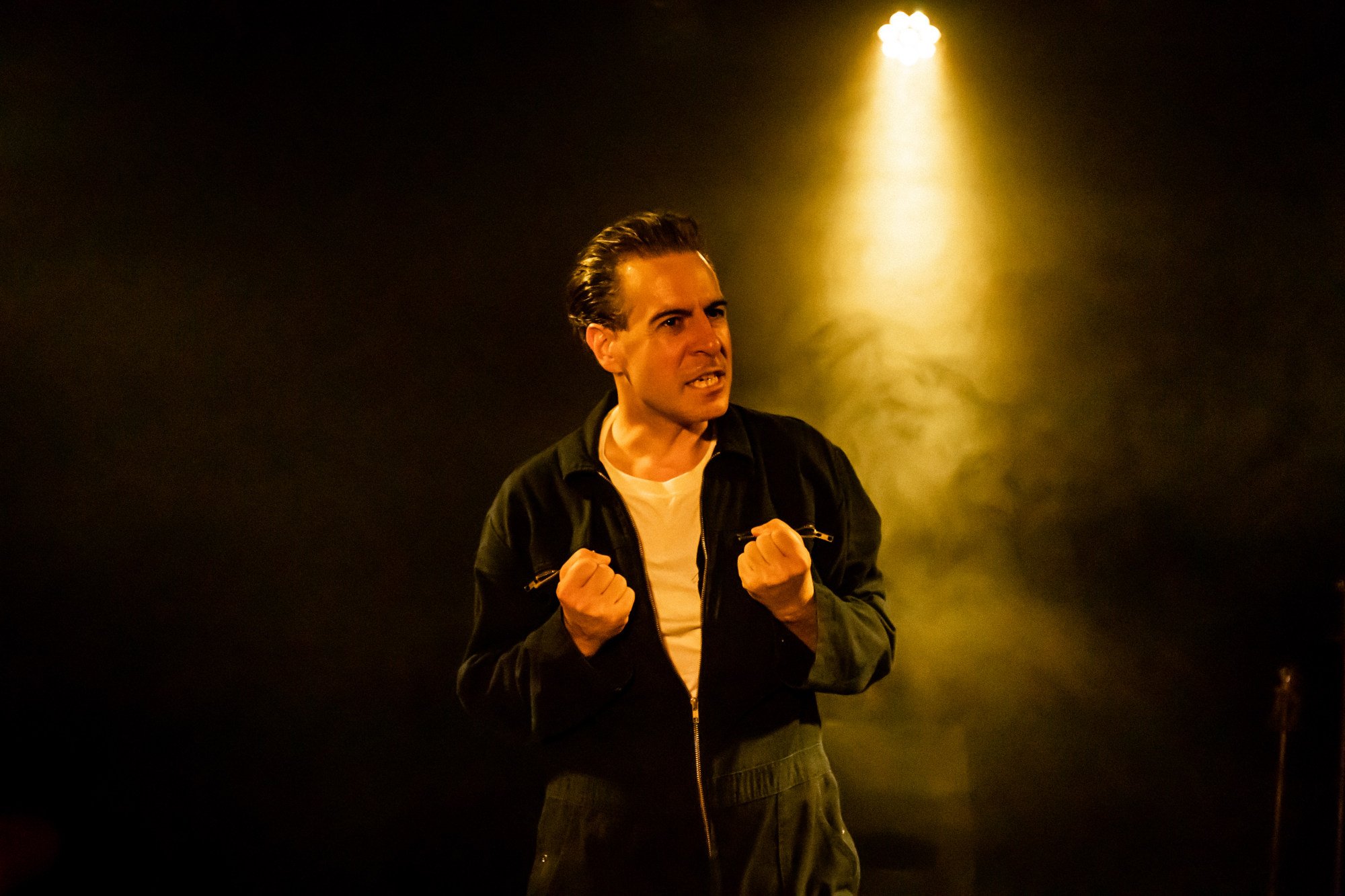
The playwright was captivated by his story.
“I’d never come across something quite so vivid, brave and unique,” says Farrelly. “I was amazed at how joyful and inspiring the writing is – there’s certainly darkness there, he didn’t shy away from any truths; but he was making art right up to the end of his life.
“I thought, ‘Gosh, somebody should make a solo piece about this.’ It was staring me in the face, but I didn’t think of doing it myself, which is probably a hangover from being in awe of him.”
There’s no other set. It’s just me, those few props, the words, the sound and the light
Eventually, he was convinced by a colleague to perform it himself. “It’s been one of the most enjoyable things I’ve done in my life,” he says.
“I find his courage in confronting [the viewer] very appealing. I think that’s what art should be. It should unsettle and disturb – of course it should entertain, amuse, enlighten and all these joyful things, but it should challenge as well.
“You should come away from a piece of art different from how you went into it, which is a big thing that resonates with Derek Jarman.”
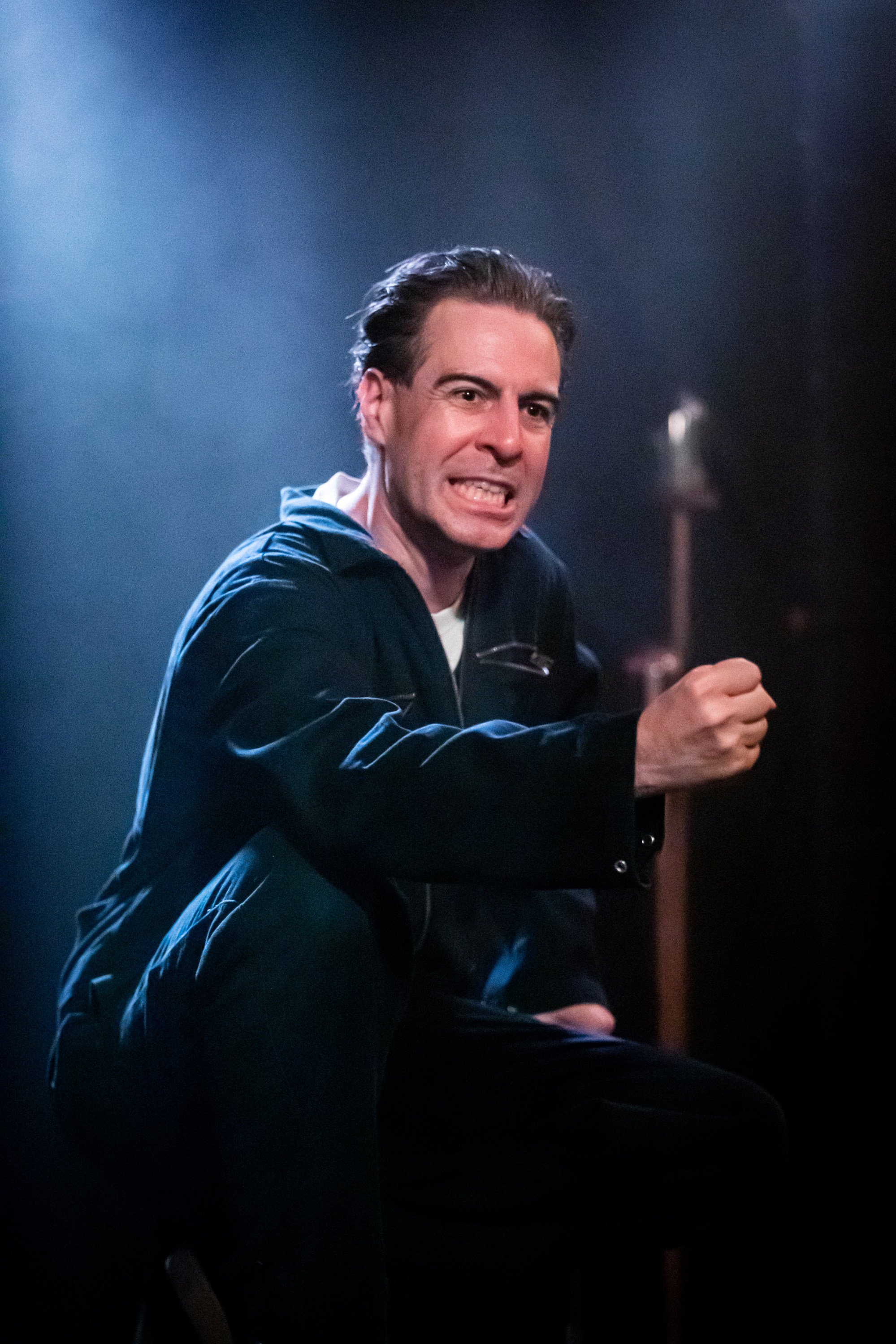
The playwright adds that some of Jarman’s last paintings are harsh confrontations with his illness that one “can’t feel unaffected” by. “In his work, there’s lightness and inspiration, and darkness and confrontation. You get a real spectrum of human expression. He’s not a limited artist in any way.”
Farrelly is putting Jarman centre stage with the solo piece. “The language in his autobiography and the articles he wrote is utterly beguiling and unique, and I didn’t want to interfere with that. I wanted the audience to get a concentrated dose of that Jarman voice.”
The play chronicles Jarman’s life from childhood and art school to his untimely death in a London hospital, with only the props of “a chair, a torch, a bedsheet and a roll of brown wrapping paper”.
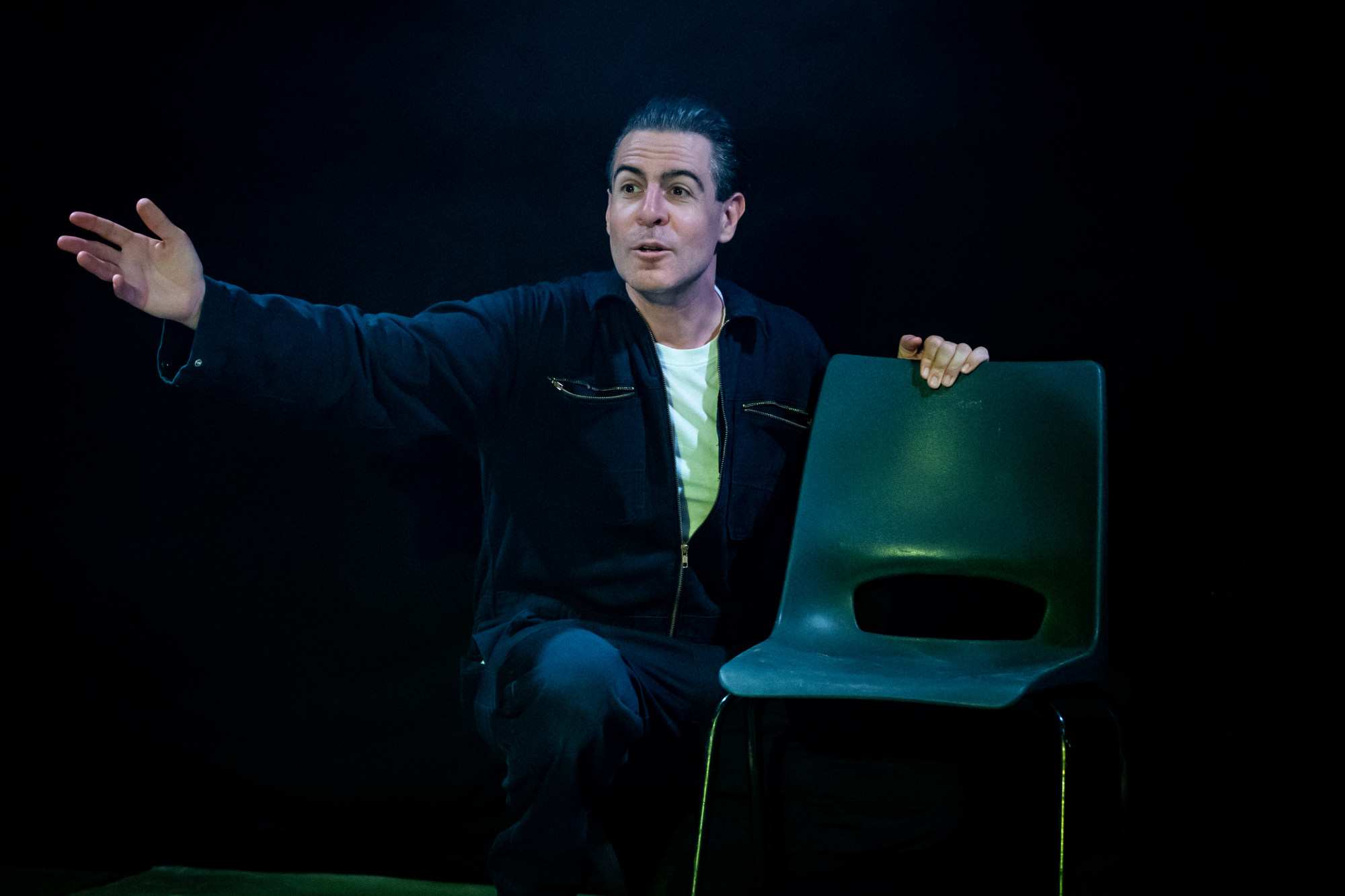
“There’s no other set. It’s just me, those few props, the words, the sound and the light. We decided early on to make the play with very few elements deliberately in this lo-fi, simple way, because that’s what Jarman did.”
Farrelly adds: “There is something about him a bit like an Elizabethan mystical magician, so we wanted the play to have that quality, too.”
Since its debut about a year ago, Jarman has toured Britain for what the actor estimates to be almost 100 shows, but his advice to newcomers remains: “Please don’t look him up, don’t google him, don’t go to Wikipedia.”
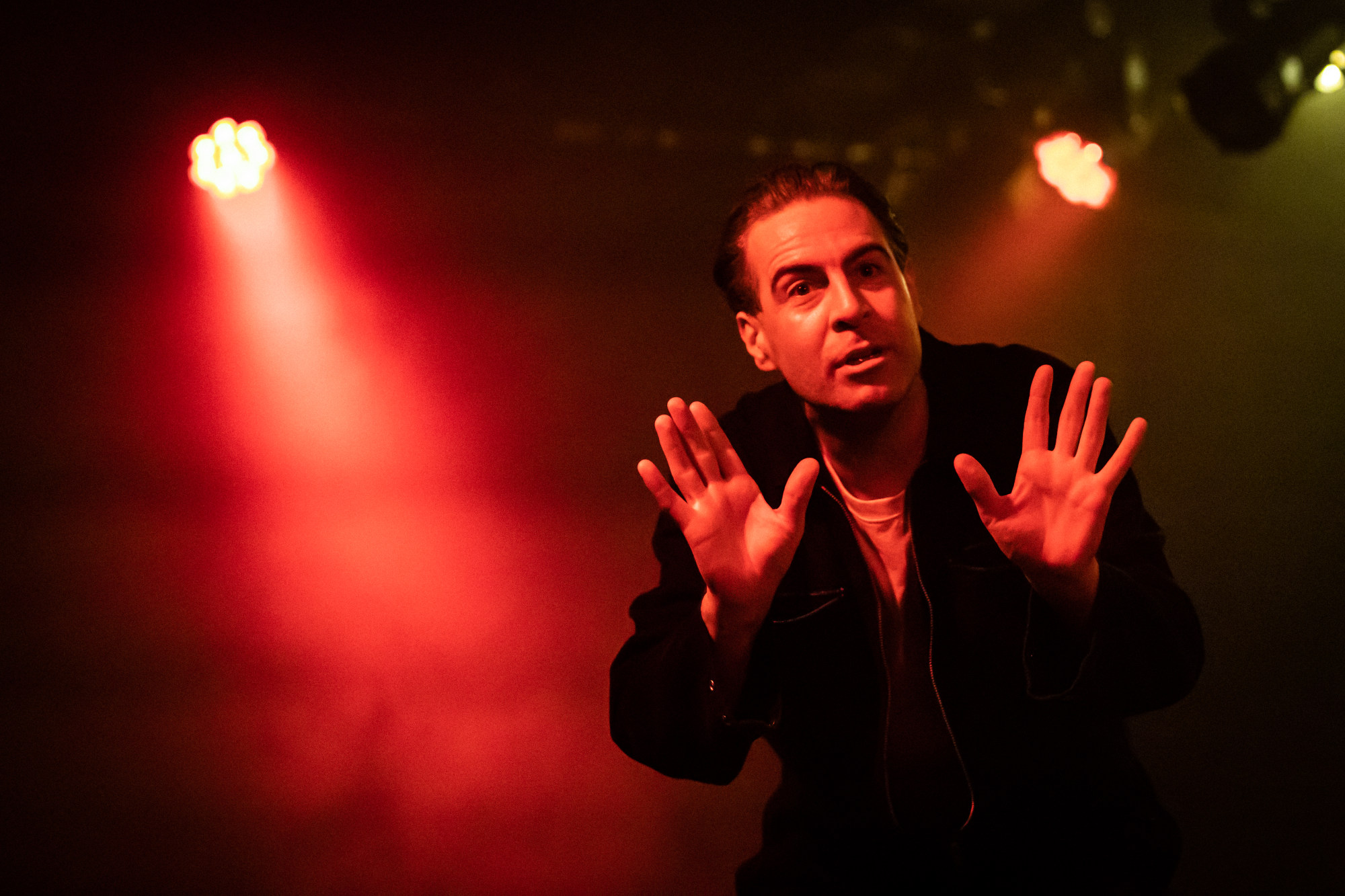
“If I’m doing my job well enough, I’ll give you all the information you need to discover in the moment. I don’t feel you need any prior knowledge of him to get something from the piece.”
Jarman, 8pm on January 26; 3pm and 8pm on January 27; 3pm on January 28. Studio Theatre, Hong Kong Cultural Centre, Tsim Sha Tsui. For tickets, go to urbtix.hk.

